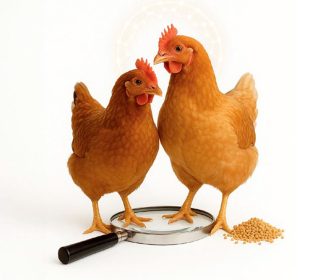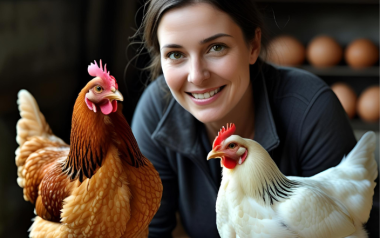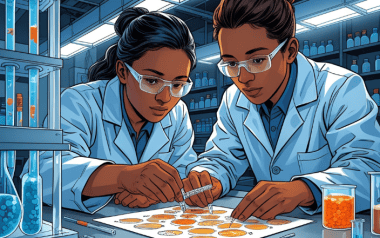“The hematopoietic cells also produce thrombocytes associated with blood clotting, and therefore their damage by CAV is associated with intramuscular hemorrhage in the host.”
30 Mar 2021
What should we know about the chicken anemia virus?
The chicken anemia virus is responsible for causing chicken infectious anemia, an immunosuppressive disease that globally impacts the poultry industry, affecting in the same way males and females.
Available in other languages:
Content available at:
العربية (Arabic)
Chicken anemia virus (CAV) is a non-enveloped, icosahedral, single-stranded DNA virus belonging to the Gyrovirus from the Anelloviridae family. The CAV is responsible for causing the chicken infectious anemia (CIA), an immunosuppressive disease that globally impacts the poultry industry, affecting in the same way males and females. It was reported that poultry was the only natural host for CAV, but in 2015 a similar strain in humans was identified.
One of the main characteristics of CAV is its open reading frame that codes for three types of proteins called:
- Viral protein 1 (VP1)
- Viral Protein 2 (VP2)
- Viral protein 3 (VP3)
What are the target of the virus and pathogenesis?
The target are the hemocytoblast of the bone marrow and the precursor lymphocytes of the thymus. When the infection occurs, the hematopoietic cells are damaged, leading to a reduction in the erythrocyte and myeloid cell production, causing anemia.
How is the CAV transmitted?
The CAV can be transmitted either vertically by the breeder’s infection to the progeny or horizontally via feathers, oral, and fecal contaminations to young and adult chickens, respectively.
What are the symptoms?
Symptoms differ according to age. Young chickens with less than two weeks of age commonly present anemia, weight loss, intramuscular hemorrhage, and bone marrow aplasia. In contrast, broilers can have subclinical symptoms, including poor growth and predisposition to get other pathogens.
How can it be controlled?
The only available measure for preventing vertical transmission is through vaccination and adequate management. If the breeders are vaccinated, their progeny will have maternal antibodies to protect them against clinical signs of chicken anemia virus.
“Inactivated vaccine has been regarded as safe because it is stable, though with
TO CONTINUE READING REGISTER IT IS COMPLETELY FREE
Access to articles in PDF
Keep up to date with our newsletters
Receive the magazine for free in digital version
REGISTRATION
ACCESS
YOUR ACCOUNT
LOGIN
Lost your password?







































